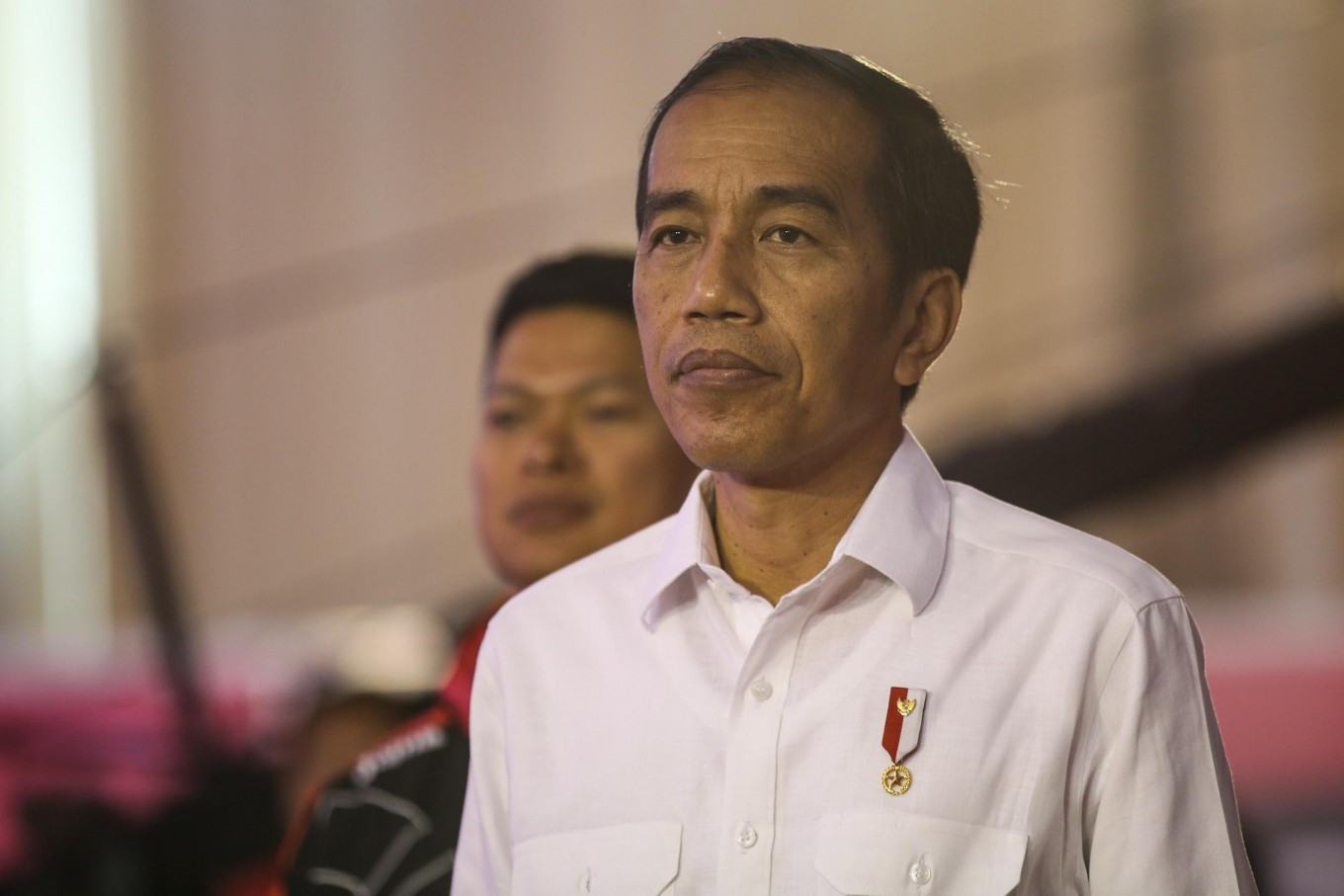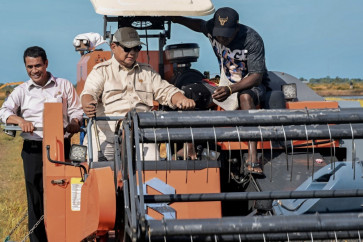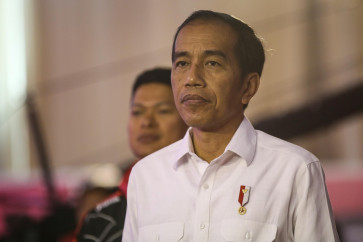Popular Reads
Top Results
Can't find what you're looking for?
View all search resultsPopular Reads
Top Results
Can't find what you're looking for?
View all search resultsAnalysis: Jokowi seals downstream legacy with Freeport, AMNT smelters
Change text size
Gift Premium Articles
to Anyone
L
ess than a month before his second and final term comes to an end, President Joko “Jokowi” Widodo inaugurated two of the world’s biggest copper and gold smelters on Sept. 23, essentially sealing his legacy in expanding the country’s mineral downstream industry, which has created rifts with major economic powers.
On Monday, Jokowi first inaugurated the smelter of PT Amman Mineral Nusa Tenggara (AMNT) in West Sumbawa, West Nusa Tenggara, which Energy and Mineral Resources Minister Bahlil Lahadalia described as the first smelter belonging to a local business group, Medco Group, which owns shares in AMNT. The President then flew to Gresik, East Java, and inaugurated a smelter belonging to PT Freeport Indonesia, which is 51 percent owned by state-owned mining holding company MIND ID and 49 percent owned by the United States mining giant Freeport McMoRan.
Both AMNT and Freeport were reluctant to build the smelters, which they deemed unprofitable ventures, but had no other choice due to the government ban on exports of copper ores, as well as nickel and bauxite ores. The move was part of the Jokowi administration’s policy to expanding the mineral downstream industry. The smelters’ construction was delayed several times, in part due the companies’ reluctance and because of the COVID-19 pandemic.
Freeport’s Gresik smelter is the world’s largest single-line copper smelter and is worth around Rp 56 trillion (US$3.6 billion). The smelter is expected to refine 1.7 million tonnes of copper and gold concentrate from the company’s Grasberg mine in Central Papua into 900,000 tonnes of copper cathodes, 50 tonnes of gold and 210 tonnes of silver. The Gresik smelter was completed in December 2023 and started pre-commissioning in May 2024. The facility is to be fully operational by the year-end, and will employ 2,000 people, including 800 direct employees and 1,200 contract workers.
AMNT’s West Sumbawa smelter is relatively smaller. With an investment value of Rp 21 trillion, it is capable of processing 900,000 tonnes of copper concentrate per year from the company’s Batu Hijau and Elang mines on Sumbawa Island into 222,000 tonnes of copper cathodes, 18 tonnes of gold and 55 tonnes of silver. AMNT had delayed the project several times and rushed to complete it over the past 14 months, which it claimed was the world’s fastest construction period for a smelter.
While inaugurating the Gresik smelter, President Jokowi expressed his hope that with the operation of the new Freeport and AMNT smelters as well as other mineral smelters, especially for nickel, his of downstream expansion policy would help the national economy shift from its reliance on household consumption to industrial manufacturing.
Jokowi launched his mineral downstream policy with a ban on nickel ore exports, which prompted protests from the European Union. The bloc subsequently filed a lawsuit over the ban with the World Trade Organization (WTO), which ruled in favor of the EU in October 2022, but Jokowi was unfazed and continued with his policy.



















